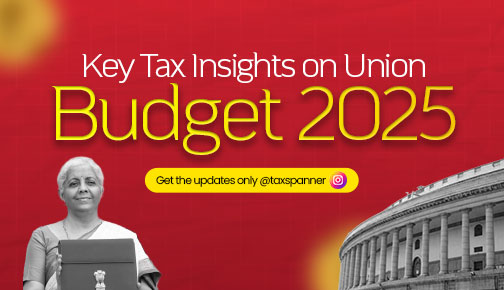Tax Reforms to Benefit the Salaried Class: Insights from TaxSpanner CEO Sudhir Kaushik
As we eagerly await the upcoming budget, there is considerable anticipation around potential tax reforms that could significantly benefit the salaried class. Sudhir Kaushik, CEO of TaxSpanner, offers valuable insights into the specific tax changes that could improve financial wellness for employees and foster broader economic growth.
Employee-Centric Salary Structuring
One of the key proposals from Sudhir Kaushik is the need for flexibility in salary structuring. Currently, employees are restricted by their employers from fully leveraging tax benefits available under income tax laws. Kaushik advocates for the removal of these employer-imposed restrictions, allowing employees to structure their salaries more tax-efficiently. Several benefits, such as employer NPS contributions, LTA, and various perquisites like meal coupons, car leases, driver salaries, fuel and maintenance, books and periodicals, uniform allowances, and gifts up to Rs 5000, are underutilized due to these constraints.
The freedom to structure salaries in accordance with income tax laws would enable employees to maximize their tax savings and increase their disposable income. It would also simplify the process of tax planning, making it easier for employees to manage their finances. By enabling employees to take full advantage of these benefits, the government can help reduce the financial burden on the salaried class and improve their overall financial health.
Improving Section 80C Limits
Kaushik emphasizes the need to increase the Section 80C limit from Rs 1.5 lakh to Rs 2.5 lakh. This limit has remained unchanged for years, despite inflation eroding its real value. An increase in this limit would not only increase the financial wellness of salaried families but also promote growth by encouraging higher savings and investments. Section 80C includes investments in instruments such as PPF, NSC, life insurance premiums, ELSS, and home loan principal repayment, which are crucial for long-term financial security.
Furthermore, with the new tax regime offering a higher tax exemption limit of Rs 7 lakh, raising the 80C and NPS 80CCD (1B) limits from Rs 50,000 to Rs 1 lakh would be a significant boon for tax savers with higher salaries. This change would incentivize more people to invest in retirement savings and other financial instruments, contributing to a more financially secure population.
Impact of Increased Standard Deduction and Tax Brackets
An increase in the standard deduction and adjustments to tax brackets would directly translate to more disposable income for the salaried class. This additional cash can be utilized for family needs and other essential expenses. If these changes are implemented, employees would not need to invest solely for the purpose of tax savings, thereby freeing up their finances for other priorities.
Higher disposable income would also likely boost consumer spending, driving economic growth. When employees have more money to spend, they are more likely to invest in goods and services, which can stimulate various sectors of the economy. This ripple effect can lead to increased demand for products, higher production rates, and ultimately, more job creation.
Broader Tax Reforms for Economic Growth
Beyond individual tax relief, Kaushik proposes broader tax reforms to incentivize growth and investment. Increasing job creation through start-ups, making service exports more attractive with incentives, and providing financial assistance in high-growth areas can significantly benefit the younger generation. Encouraging large businesses to hire interns by offering additional deductions can also help students gain practical experience alongside their studies.
These broader reforms are essential for fostering an environment conductive to innovation and entrepreneurship. By supporting start-ups and service exports, the government can create more opportunities for the salaried class to engage in new ventures and explore diverse career paths. Additionally, financial assistance in high-growth areas can attract more investments, leading to the development of cutting-edge industries and technologies.
In conclusion, as the upcoming budget approaches, the salaried class has much to look forward to in terms of the potential tax reforms. TaxSpanner CEO, Sudhir Kaushik’s proposals highlight the need for flexibility in salary structuring, increased limits for tax-saving investments, and the broader reforms to drive economic growth. By implementing these changes, the government can improve the financial wellness of employees, foster investment, and also stimulate overall economic development.
Explore TaxSpanner's wide range of calculators for your tax planning and calculations!
View Tools & Calculators



